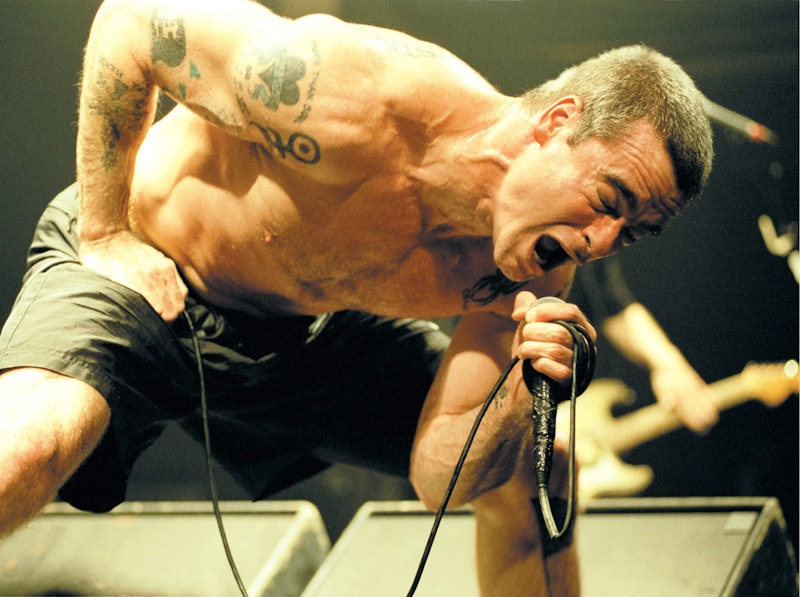Henry Rollins is a hardcore music legend. As lead singer for Black Flag (1981–86) and the Rollins Band (1987–2006), he was a figurehead in the Los Angeles punk rock scene. He became a music radio host, an actor and columnist for LA Weekly. He was no stranger to violence, having engaged in fights with punk rock audience members for years. But in 1991, he nearly lost his life.
Rollins and his best friend Joseph Cole, a roadie for Black Flag, were making a documentary about homeless Vietnam veterans in Venice Beach. The two friends rented an apartment in the rough Oakwood section of Venice to facilitate filming. On December 19, 1991, they attended a Hole concert at Whiskey a Go Go on the Sunset Strip. They returned to their neighborhood around midnight and walked a block to an all-night grocery store. Returning home, they were confronted by two twentysomething men armed with guns. (Likely members of a local gang.)
The assailants forced Rollins to his knees and made Cole lie face down on the sidewalk. They pointed guns at Rollins and Cole and told them if they screamed they’d die. They demanded money but Rollins and Cole only had $50 between them. The robbers ordered Rollins to go inside his apartment and retrieve more cash.
Rollins rose and walked toward the apartment. He heard a gun shot behind him. Not looking back, he ran as one of the robbers fired at him missing him by inches. He sprinted through his apartment and escaped out a back window. He jumped a fence into a nearby alley and ran several blocks to a liquor store with a payphone and called for help. By the time police arrived, Cole was dead, shot in the head. The robbers were long gone.
Cole was a beloved figure in the LA music community. Hole dedicated their album Live Through This to Cole’s memory. Cole was also memorialized in the Sonic Youth song “100%” where Kim Gordon sang, “I can never forget you the way you rock the girls… But now that you been shot dead, I got a new surprise.”
Rollins spoke about the incident in a 1992 interview with The Los Angeles Times. “I dug up all the earth where his head fell—he was shot in the face—and I’ve got all the dirt here, and so Joe Cole’s in the house. I say good morning to him every day. I got his phone, too, so I got a direct line to him. So that feels good.”
In a 2001 interview with Howard Stern, Rollins denied rumors he kept Cole’s brain in his house. He told Stern that several days before the incident, record producer Rick Rubin visited their apartment to listen to Rollins’ new album The End of Silence. Rubin parked his Rolls-Royce outside. Rollins feared this would bring unwanted attention from nefarious locals who’d think Rollins was a rich rock star. That night, Rollins wrote in his journal that his home “is going to get popped.”
In 2013, Rollins reflected on the incident in his LA Weekly column: “Joe Cole’s murder gave me a powerful tutorial on guns and America…The murder of my friend taught me that America is a 50-state-wide killing field. None of that red state/blue state bullshit means a damn thing to me. As soon as I leave my house, I am on the kill grid… In the weeks and months after his murder, I was inundated with letters of condolence and, sadly, stories from other Americans who had been through the American gun homicide experience… It was perhaps the pointlessness of the deaths that was the hardest part to deal with… Joe Cole was like thousands of other Americans. He was shot and killed by another American. This is who we are.”
The killers were never found.

